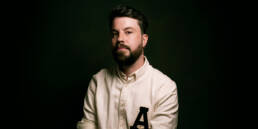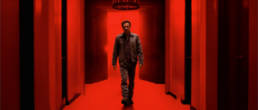
Mike Flanagan is a darling of horror film festivals and a rapidly rising star of the genre. Therefore, I was not at all surprised upon learning that he had been tasked with bringing Stephen King’s ‘Doctor Sleep’ onto the silver screen. On the contrary, I was excited, and fortunately, my initial expectations were met although not dramatically exceeded. Don’t get me wrong, I was not disappointed, though I do feel like Mr Flanagan was constantly torn between pleasing both Kubrick and King audiences—surely, we agree they’re not one and the same.
Adapting Stephen King’s works has always been a hit and a miss process, with some exquisite cinematic masterpieces like ‘The Shining’ (1980), the celebrated precursor to ‘Doctor Sleep’, as well as ‘The Shawshank Redemption’ (1994), ‘Carrie’ (1976), ‘The Green Mile’ (1999), and ‘Stand by Me’ (1986), to name but a few. I’m relieved to be able to place Flanagan’s work into the good pile rather than the bad, where bombs like ‘Needful Things’ (1993) and ‘Maximum Overdrive’ (1986) dwell.
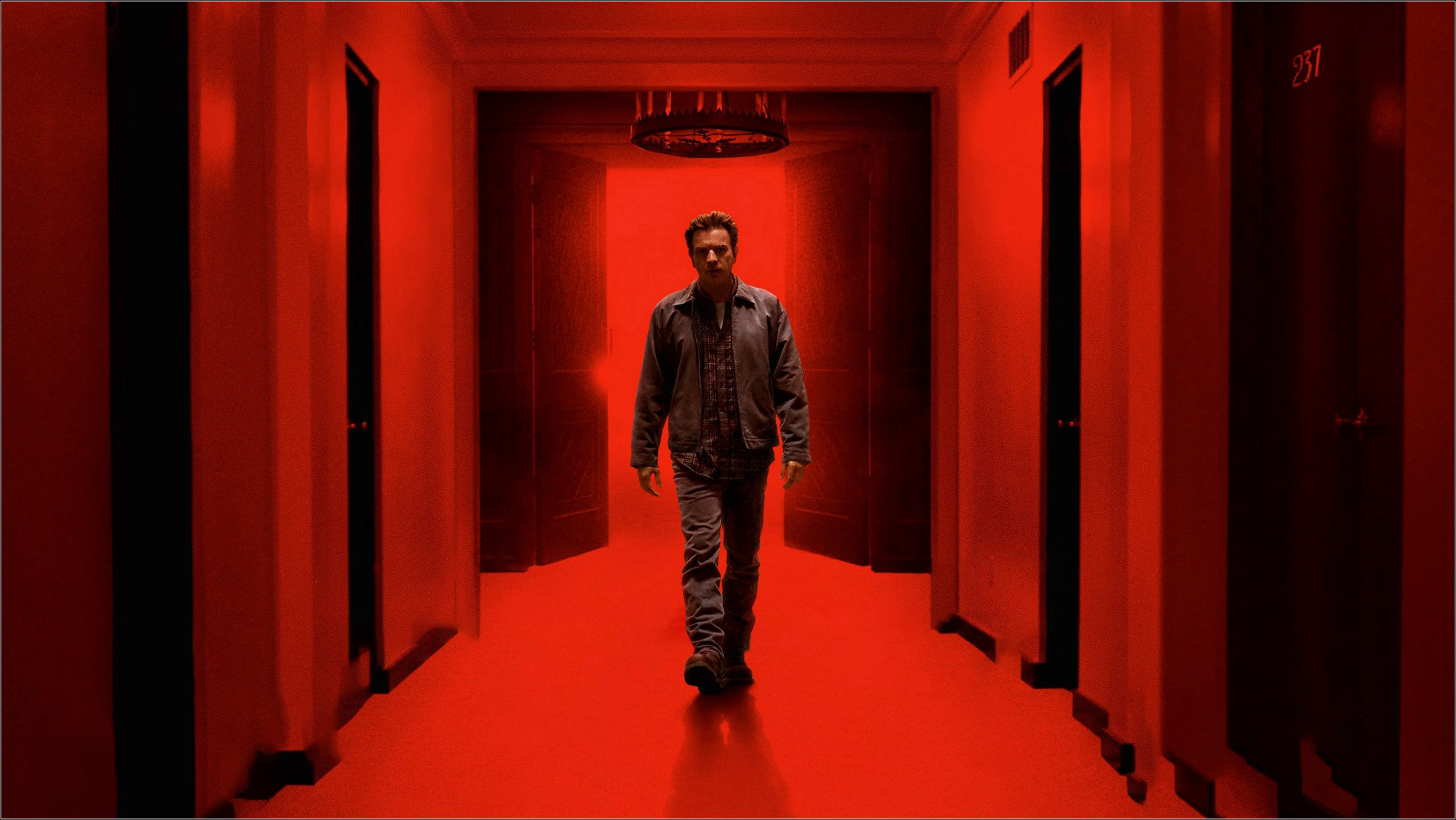 ‘DOCTOR SLEEP’ (2020), ©WARNER BROS.
‘DOCTOR SLEEP’ (2020), ©WARNER BROS.
‘Doctor Sleep’ has ginormous shoes to fill, and Mr Flanagan does an excellent job of not getting himself lost inside them. After all, ‘The Shining’ suffered critical modifications from book to screen. Most of you might remember that Mr King hated Kubrick’s adaptation so much that he invested in a remake which unsurprisingly bombed. As far as the storyline goes, ‘Doctor Sleep’ picks up where ‘The Shining’ left off—both the movie and the book, which had to be tied up somehow in a manner that made sense. The book saw the Overlook Hotel exploding. The film clearly didn’t. Some assembly was required.
In the first ‘chapter’ of the film, we follow young Danny Torrance at first with his mum, both of them learning to live with the trauma and grief after leaving Jack for dead at the Overlook. While Shelley Duval and Jack Nicholson dominated ‘The Shining’ back in 1980, Flanagan’s sequel adaptation has Henry Thomas and Alex Essoe as Jack and Wendy. Aesthetically grand choices, both talented and intense enough to portray iconic characters. Danny is trying to cope with his ‘shining’, his special ability that brought the Overlook to life, so to speak, in the first place. Having been introduced to death and ghosts and violence from such a young age, it’s difficult for him to move on, especially since the spectres have followed him home.
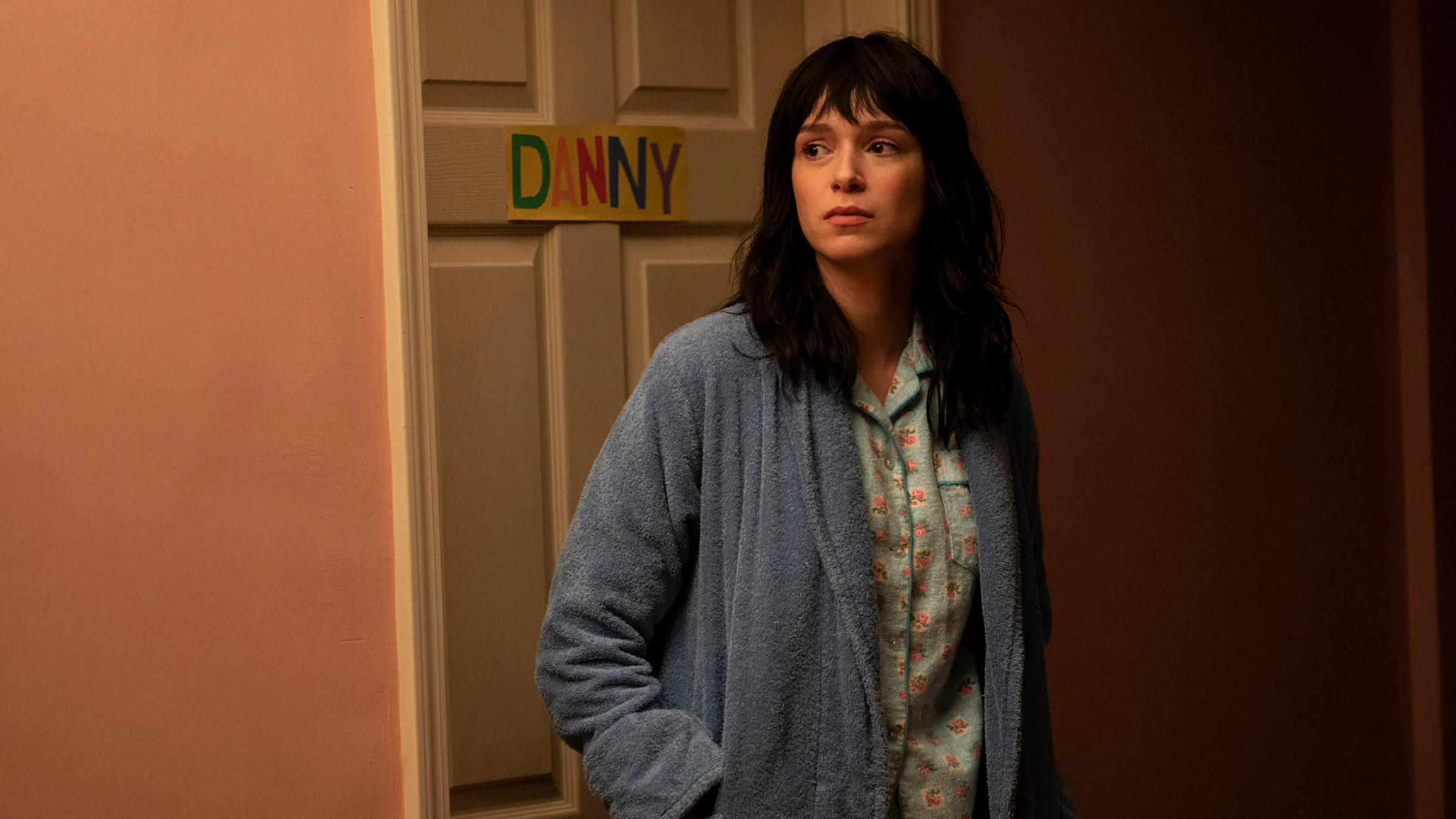 ‘DOCTOR SLEEP’ (2020), ©WARNER BROS.
‘DOCTOR SLEEP’ (2020), ©WARNER BROS.
After he learns to lock away the bad stuff with a little trick from his memory of Dick Hallorann, Danny delves into adulthood with a serious drinking problem. The film follows him right up to the peak of his crisis. Having used alcohol to cope with his ‘shining’, Danny hits rock bottom when he takes money out of the wallet of a woman with whom he had a coke-and-booze-addled affair the night before.
Ultimately, Danny moves to a small town in New Hampshire, sobers up, attends AA meetings, and remotely befriends Abra Stone, a little girl with a gift like his. Of course, things take the obligatory dip into nightmare territory when a cult of apparent immortals start hunting Abra down, desperate to feed on her ‘shining’ in order to further prolong their lives—her power could feed them for entire generations, unlike other kids with ‘steam’, as they call it, these days. Danny must therefore mentor and protect the girl against these monsters, who will stop at nothing to kill her.
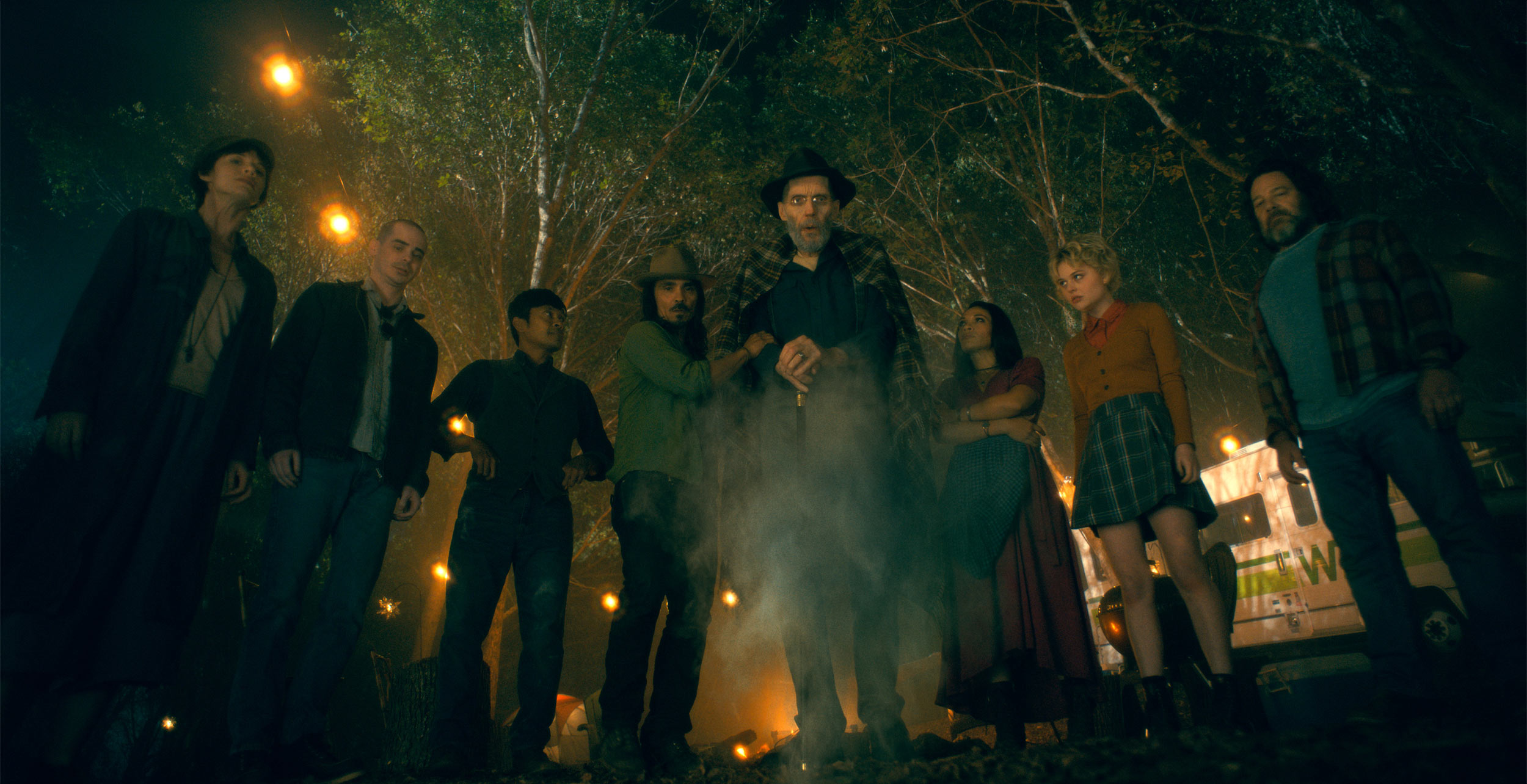 ‘DOCTOR SLEEP’ (2020), ©WARNER BROS.
‘DOCTOR SLEEP’ (2020), ©WARNER BROS.
I am in awe of Ewan McGregor. He manages to do a lot more with an otherwise bland character—the book’s strength did not come from Danny Torrance, not where ‘Doctor Sleep’ is concerned, at least. The kid version of him from ‘The Shining’ was a strong presence. But Mr McGregor breathes life into a grown-up Danny with his fears and vulnerabilities and self-loathing. We believe him as the alcoholic in desperate need of redemption, and we believe him as the man who is ready to face the demons of his past, including his own father, in order to protect the future, here portrayed by young Abra Stone.
His growth as Doctor Sleep, the kind soul who guides the dying hospice patients where he works into the afterlife, is done with a certain solemnity and reverence towards death itself. This particularly poignant side of him has roots in Flanagan’s writing, too, carrying over several touching notes from ‘The Haunting of Hill House’ (2018). McGregor’s Danny isn’t just the main character, however. He is also the supporting element for Kyliegh Curran’s Abra—not necessarily a father figure but more of a Dick Hallorann himself.
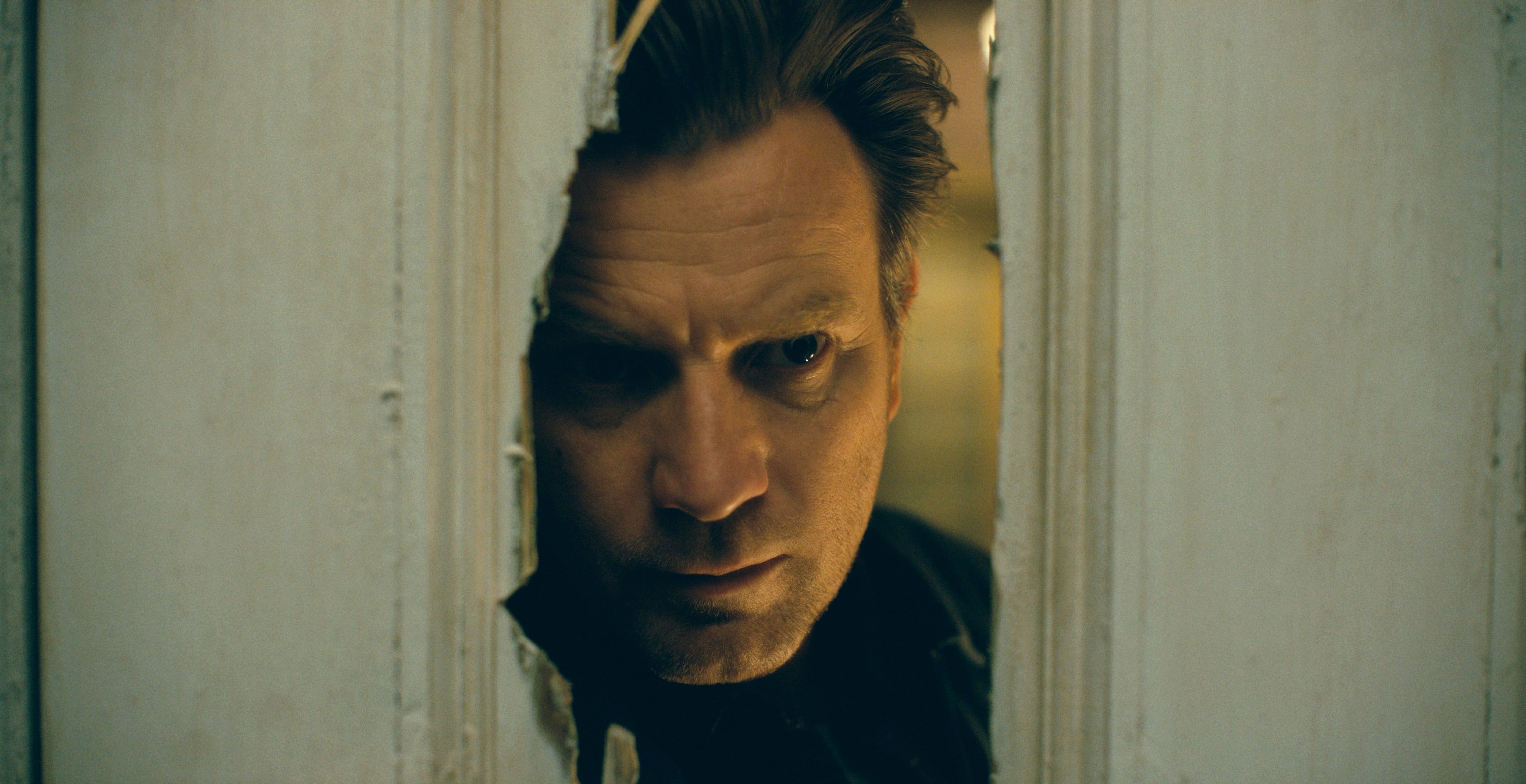 ‘DOCTOR SLEEP’ (2020), ©WARNER BROS.
‘DOCTOR SLEEP’ (2020), ©WARNER BROS.
Ms Curran’s interpretation of a teenage girl who has grown with a titanic ‘shining’ is also noteworthy. While still young, she does not lack the talent to bring Abra to life as Mr King penned her. She is not a victim, nor is she entirely invulnerable. No, Abra is aware of how insanely awesome she is, but Danny does help to remind her that she is not invincible, either—that’s something she also gets from those frightful telepathic encounters with Rose the Hat.
From Abra’s point of view, I’d say that ‘Doctor Sleep’ is less a tale of empowerment and more a journey of overcoming trauma and horrific violence, as Abra sees the terrible things that The True Knot cult are willing to do for power like hers.
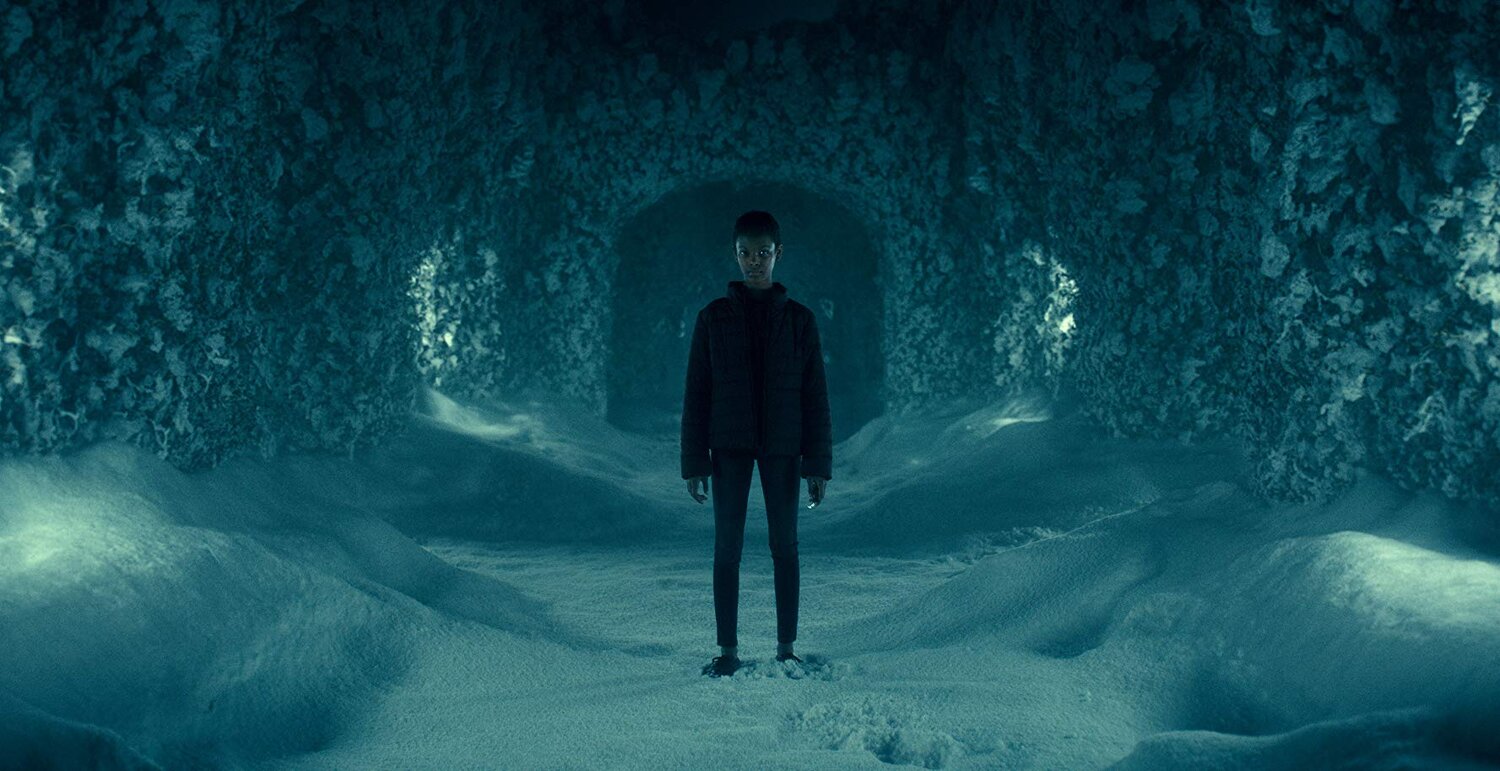 ‘DOCTOR SLEEP’ (2020), ©WARNER BROS.
‘DOCTOR SLEEP’ (2020), ©WARNER BROS.
Truth be told, I believe it’s Rebecca Ferguson’s stunning performance as Rose the Hat, the cult’s leader, that truly carries the film into the realm of greatness. The book offered little for us to work with as readers. There were plenty of gaps to be filled, yet Ms Ferguson, better known for her roles in ‘Mission: Impossible – Fallout’ (2018) and ‘The Greatest Showman’ (2017), manages to build an impressively spooky and authentic villain. There is depth in her persona and a truly desperate hunger for immortality.
While she has been a conscientious collector, her cult’s supply of ‘steam’ is running low, and their more recent victims have not been enough to feed them in the long term. The entire ‘tribe’ is a strange combo of misfits with sociopathic tendencies who live in their RV’s, crossing the entire country in search of more ‘steam’ to keep themselves young for longer. Their villainy is interesting, however, because they’re aware that they cannot live forever. Everything they do is solely for the purpose of cheating the clock. Rose and The True Knot are troubling metaphors for those in the real world who thrive and feed on pain and misery.
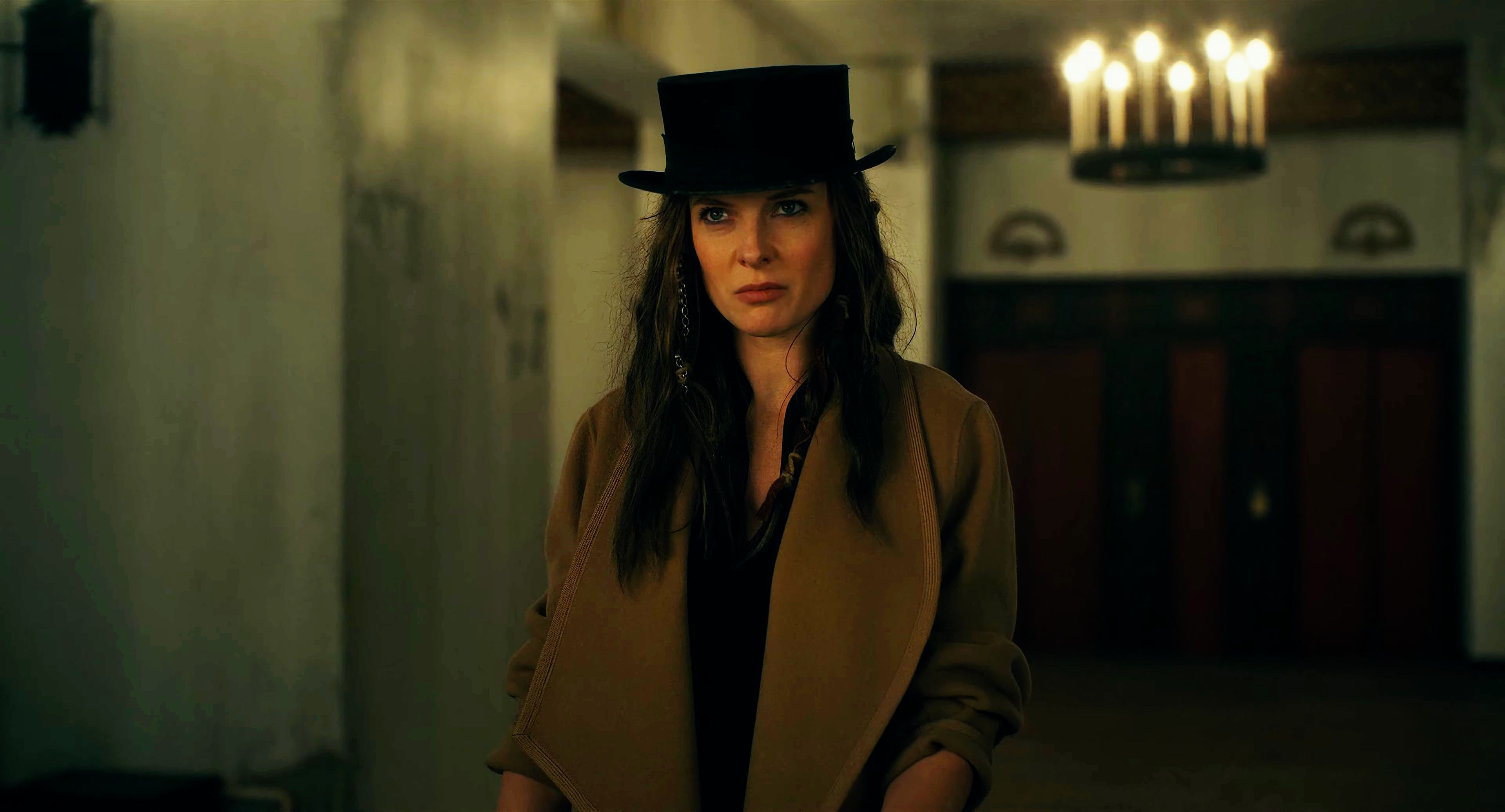 ‘DOCTOR SLEEP’ (2020), ©WARNER BROS.
‘DOCTOR SLEEP’ (2020), ©WARNER BROS.
In writing the screenplay adaptation, Mike Flanagan had to reconcile two sides of the same coin in a manner aimed at drawing and pleasing two kinds of fans—the Kubrick aficionados who still refer to ‘The Shining’ as one of the best movies ever made and the King devotees whose guilty pleasure is watching ‘The Shining’ since it is still superior to the remake. Both sides equally demanding. The writer-director faithfully recreates the elegant dread and the layered terror that made the Overlook so memorable. It is still home to a variety of live-in fiendish phantoms and a nightmarish cradle to which we are forced to return.
Story-wise, ‘Doctor Sleep’ builds Danny as the guiding light emerging from his personal darkness, a reluctant mentor to Abra’s fierce youth. She may be young, but she knows that she might be the only one who can stand up to the True Knot. On the other hand, Danny has his past demons to deal with—starting with the undying presence of his father, the spirits he locked inside boxes in his head, and the Overlook, where he knows they will have a better shot at defeating Rose the Hat.
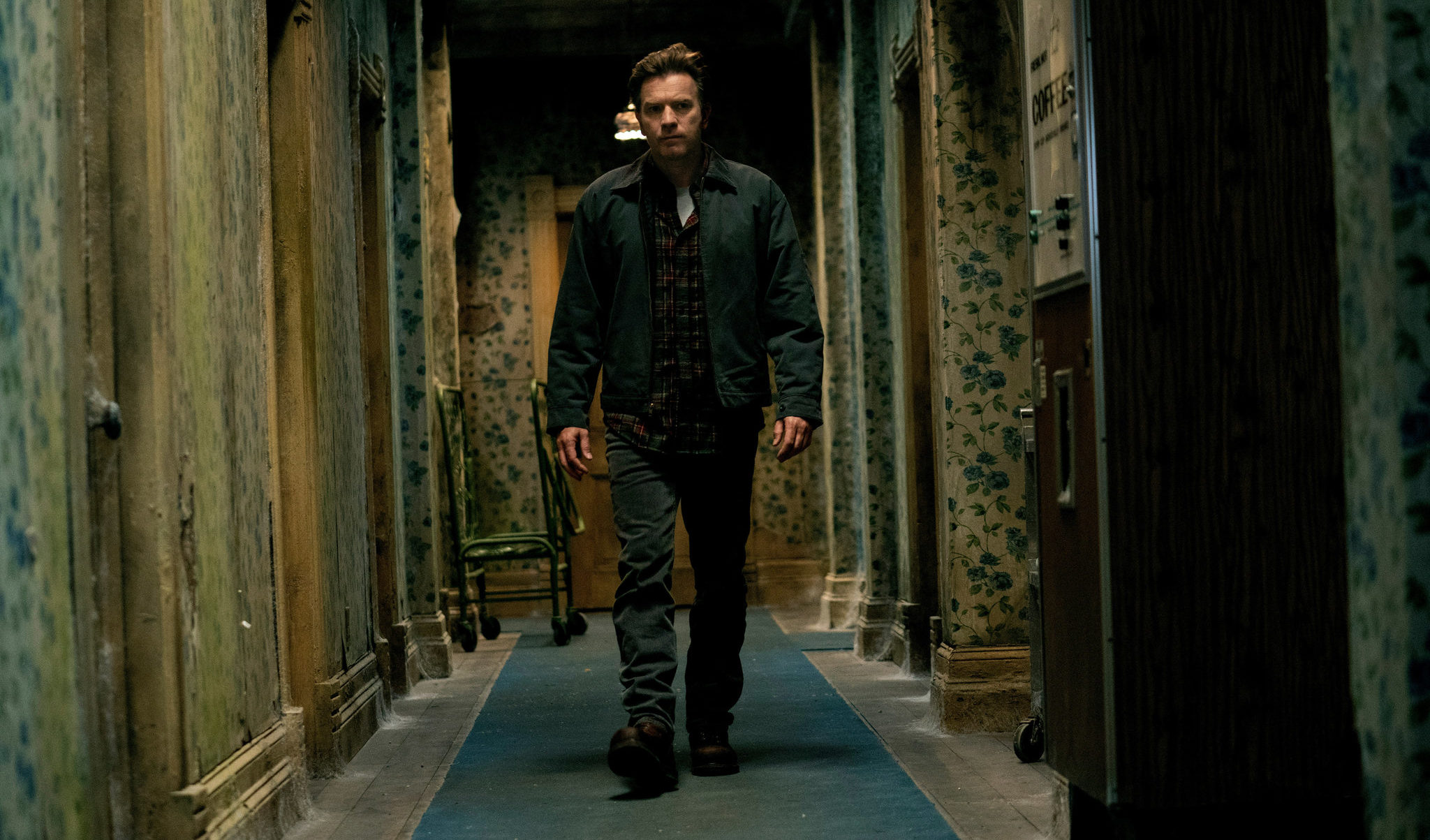 ‘DOCTOR SLEEP’ (2020), ©WARNER BROS.
‘DOCTOR SLEEP’ (2020), ©WARNER BROS.
Mike Flanagan’s ‘Doctor Sleep’ is quite the visual treat, too. Rife with emotional close-ups and mainly adhering to a nocturnal grey and blue palette, the film can be seen as an extension to ‘The Haunting of Hill House’ and as a loving tribute to Kubrick’s original imagery. Michael Fimognari has worked with Flanagan before, on ‘Gerald’s Game’ (2017), another King adaptation, and on the above noted Shirley Jackson-based Netflix miniseries. I see this as a fruitful partnership, as Mr Fimognari not only understands the sophisticated yet heart-rending style that has become Flanagan’s signature, he also manages to convey the Kubrick-inspired imagery meant to tie ‘Doctor Sleep’ to ‘The Shining’.
The lighting is low, and there is much to work with in the darkness. Rose the Hat and Crow Daddy and Snakebite Andi are thrice as scary whilst glazed in shadows, each of them hungry for a few more years, a bit more youth. In Danny’s room, the tenebrosity serves to remind us where he comes from and where he’s been, while in Abra’s room it is a medium for her to sink into when she sleeps and unwittingly witnesses the terrible murders committed by Rose and her deranged crew.
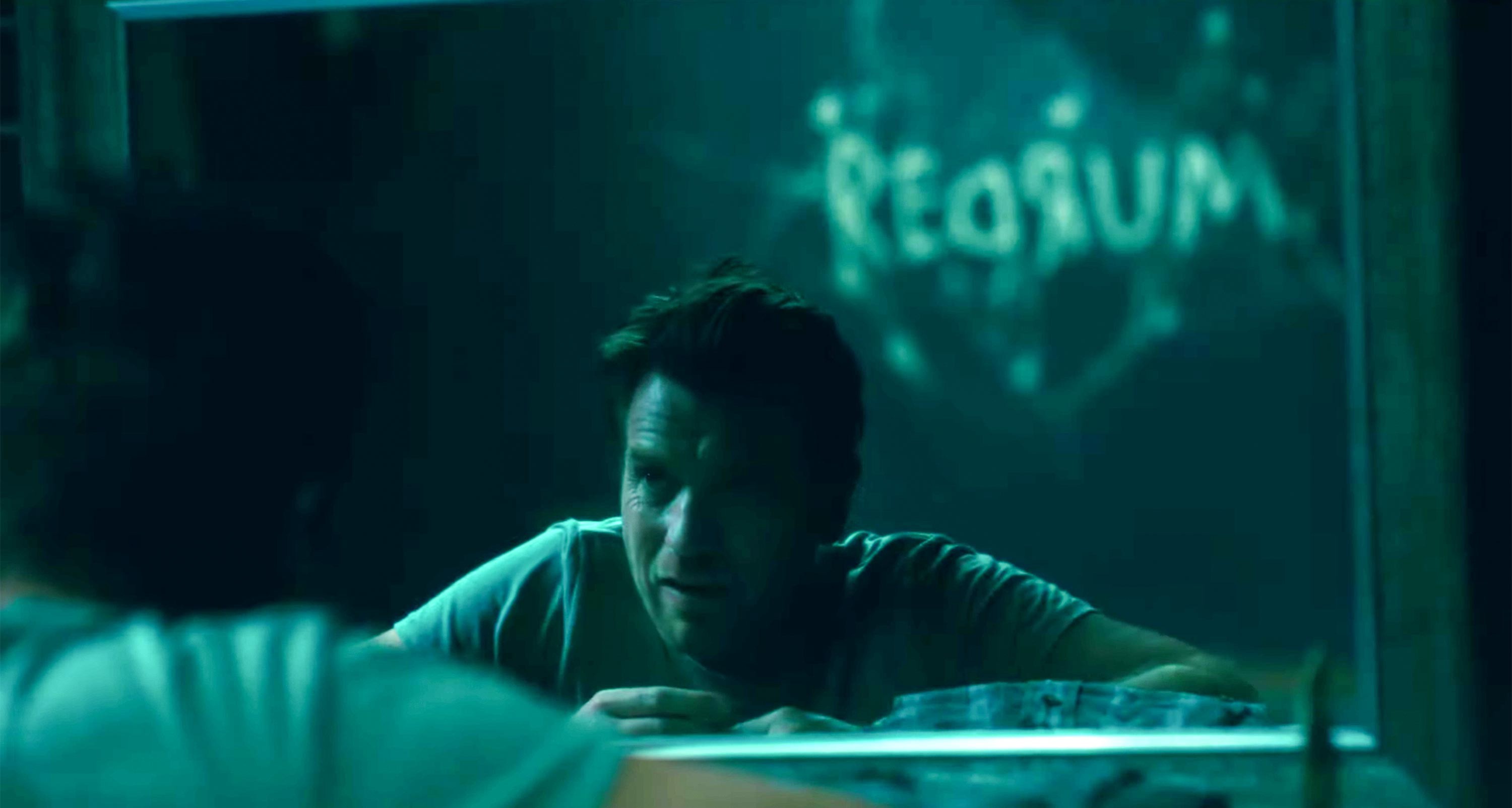 ‘DOCTOR SLEEP’ (2020), ©WARNER BROS.
‘DOCTOR SLEEP’ (2020), ©WARNER BROS.
But it’s the production design that really does it for me. The sets, in particular, stand on the shoulders of Roy Walker and Leslie Tomkins. Combined with Fimognari’s cinematography, however, the viewer is mercilessly dragged back to the real Overlook—the ‘70s style orange and brown geometric carpets, the high ceilings with wagon-wheel chandeliers, the terracotta walls and the red-door elevators… the chills just rush through and anchor us so deep into the story, we cannot escape. Not until Danny deals with his past.
Production designer Maher Ahmad, best known for ‘The Fugitive’ (1993), ‘Zombieland’ (2009), and ‘Little Evil’ (2017), and art director Richie Bearden of ‘Den of Thieves’ (2018) and ‘Game Night’ (2018) are just two of the team that delivers the superb visuals behind ‘Doctor Sleep’, and they deserve a round of heartfelt applause. It’s not just the Overlook that stands out, however. A personal favourite of mine is the visual duet between Abra and Danny’s room, the latter fitted with a blackboard wall on which she leaves him telepathic chalk messages. And then there are the minds of our characters—Danny’s with its boxes and Abra’s with its traps for Rose.
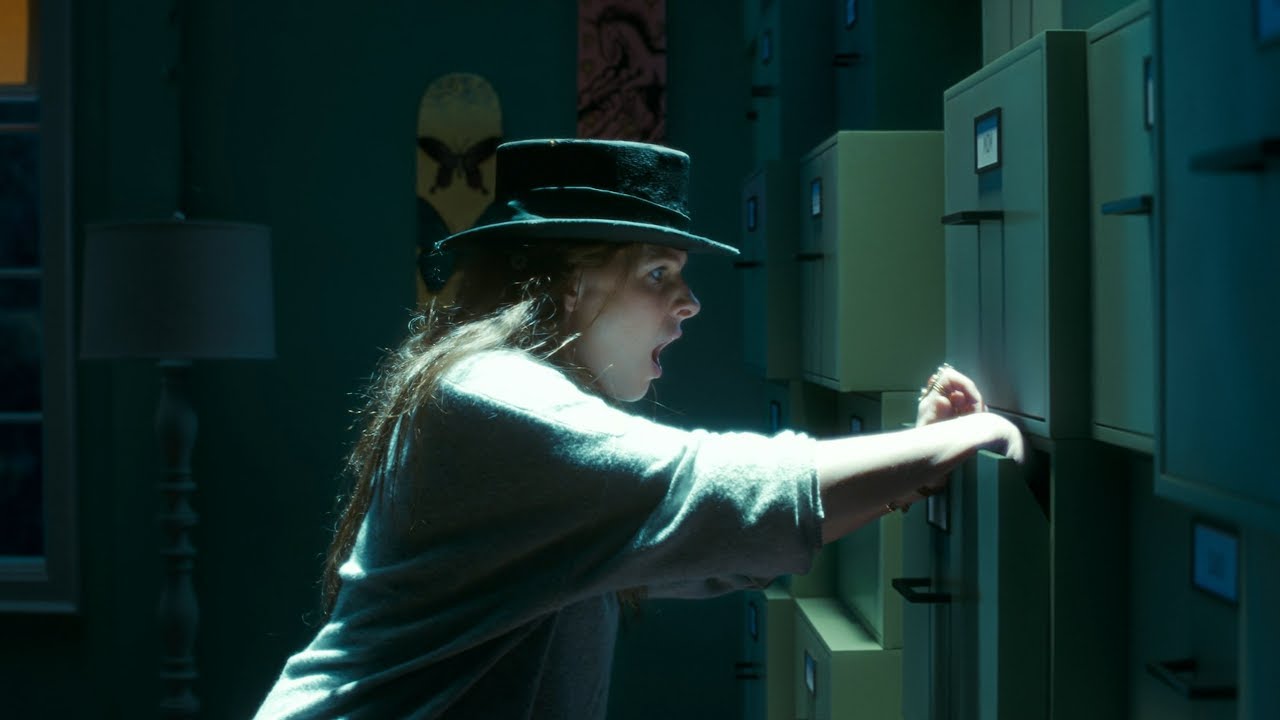 ‘DOCTOR SLEEP’ (2020), ©WARNER BROS.
‘DOCTOR SLEEP’ (2020), ©WARNER BROS.
While there are plenty of Kubrickian nods, the film ultimately stands more as a longer episode of ‘The Haunting of Hill House’, combining soul-stirring and supernatural elements that cause all kinds of jumps and jolts in the viewers. And while Mike Flanagan, a man of many talents, works hard in treading that fine line between Stanley Kubrick and Stephen King whilst building on the heritage of ‘The Shining’ left by both, he is at his peak when left to his own devices.
‘Doctor Sleep’ is the most beautiful when it steps away from its source material and predecessor, standing boldly as a cinematic oeuvre. By adding its own flavours into the mix, it expands on the book with deeply fascinating characters—I, for one, find it hard not to sympathize a little with Rose the Hat’s desire to remain young for longer. Of course, the end does not justify the means. Innocent children are tortured and murdered for the most selfish reasons, and so the horror transpires brutally onto the screen. Ultimately, Mike Flanagan follows his creative path and gifts us with a story that does not disappoint.
Jules R. Simion
Jules is a writer, screenwriter, and lover of all things cinematic. She has spent most of her adult life crafting stories and watching films, both feature-length and shorts. Jules enjoys peeling away at the layers of each production, from screenplay to post-production, in order to reveal what truly makes the story work.
An Interview with Anna Drubich
Anna Drubich is a Russian-born composer of both concert and film music, and has studied across…
A Conversation with Adam Janota Bzowski
Adam Janota Bzowski is a London-based composer and sound designer who has been working in film and…
Interview: Rebekka Karijord on the Process of Scoring Songs of Earth
Songs of Earth is Margreth Olin’s critically acclaimed nature documentary which is both an intimate…
Don't miss out
Cinematic stories delivered straight to your inbox.
Ridiculously Effective PR & Marketing
Wolkh is a full-service creative agency specialising in PR, Marketing and Branding for Film, TV, Interactive Entertainment and Performing Arts.

